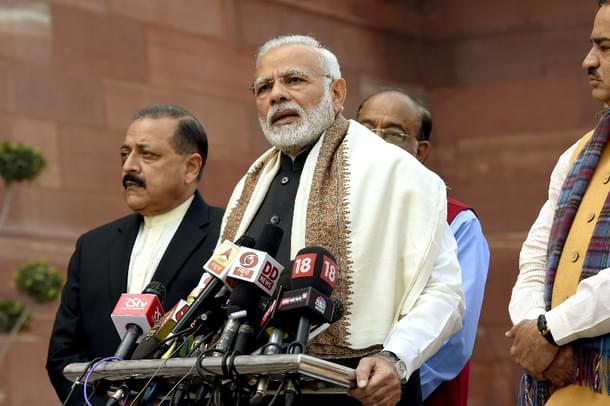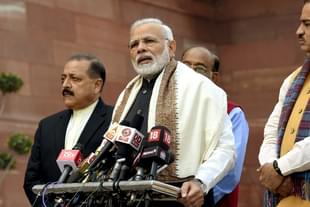Insta
This Initiative Of The Modi Government Towards Improving Ease Of Doing Business Went Almost Unnoticed
Swarajya Staff
Aug 21, 2018, 10:32 AM | Updated 10:32 AM IST
Save & read from anywhere!
Bookmark stories for easy access on any device or the Swarajya app.


During the monsoon session of the Parliament, which by some accounts was the most productive one since the year 2000, the government took a major step towards improving the business environment in the country.
The government introduced the Commercial Division and Commercial Appellate Division of High Courts Bill, 2018, which was passed by both houses of Parliament. However, like many other reforms, it did not make headlines.
The bill is aimed at simplifying the process of adjudication in commercial disputes, a major concern for local and foreign investors. This initiative, a number of experts have suggested, will bring down the time taken from the present 1,445 days for resolution of commercial disputes in courts.
While preparing its Ease of Doing Business (EoDB) rankings, the World Banks pays special attention to the efficiency with which commercial disputes are resolved in a country. ‘Efficiency of Resolving a Commercial Dispute’ is one of the many areas that the organisation grades countries on. It comes under the heading ‘Enforcing Contracts’ - one of ten parameters listed in a country’s report.
In the World Bank’s EoDB rankings released in 2017, India had finished at the 100th spot, up 30 places from a year ago.
In the last three years, India has jumped 42 positions in the ranking. With this reform, India’s ranking is expected to improve further.
The initiative has been welcomed. “By having prescribed simplified procedures and rules of evidence to be followed by these courts, the act has effectively streamlined the process of adjudication in commercial disputes,” Punit Dutt Tyagi, Executive Partner of Lakshmikumaran & Sridharan Attorneys, said.
“A quick resolution for commercial disputes is essential for encouraging business, both domestically and internationally. A speedy and effective resolution of commercial disputes will build investor confidence by reducing uncertainty,” Tyagi was quoted by the Financial Express as saying.
The problem was so grave that former Chief Economic Advisor Arvind Subramanian dedicated an entire chapter to it in the 2018 Economic Survey.





